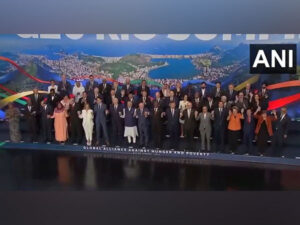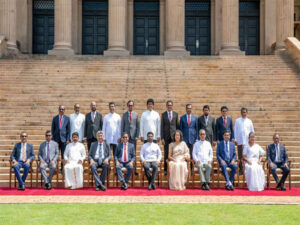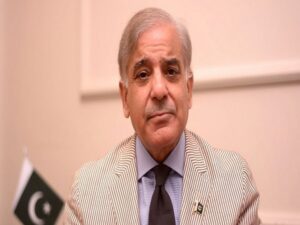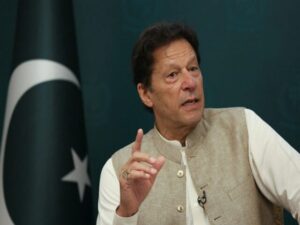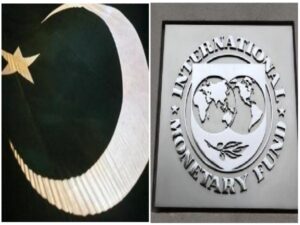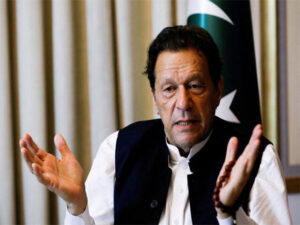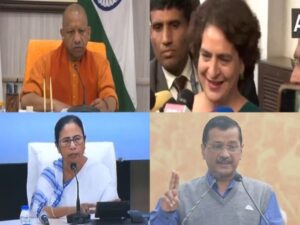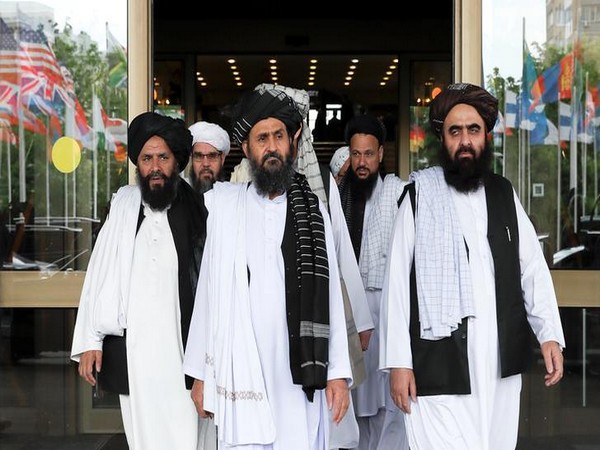
Members of a Taliban delegation, led by chief negotiator Mullah Abdul Ghani Baradar (C, front), leave after peace talks with Afghan senior politicians in Moscow, Russia May 30, 2019. REUTERS/Evgenia Novozhenina
Islamabad [Pakistan], August 23 (ANI): There’s no doubt that the recent victory of the Taliban over the Afghan government became possible with the strong help of Pakistan in past decades as for a long time Islamabad has been providing logistical support and safe havens to the Taliban terrorists in the region. But the release of nearly 2,300 Tehreek-e-Taliban (Pakistani Taliban) terrorists by the Afghan Taliban and their stand over Kashmir raises questions over its future relations with Islamabad, a media report said.
Soon after capturing Kabul, the Taliban started releasing Tehreek-e-Taliban (Pakistan Taliban) leaders. So far, Afghan-Taliban has released nearly 2,300 members of the Pakistani Taliban (TTP) including its deputy chief Faqir Mohammad. The Pakistani Taliban felicitated the Afghan Taliban for capturing Kabul after pledging allegiance to the Taliban‘s head Hibatullah Akhundzada, The Diplomat reported.
Pakistan has been always representing its good Taliban and bad Taliban approach everywhere but the booming alliance of Taliban on both sides of the Afghanistan–Pakistan border has raised questions that Islamabad’s good Taliban and bad Taliban ideology has been actually victorious. As the events are unfolding, these are suggesting that as Islamabad used the Taliban for its benefits and the terror group also did indeed, Kunwar Khuldune Shahid mentioned in The Diplomat.
The Taliban have been in talks with India and have labelled Kashmir as New Delhi’s ‘internal and bilateral’ issue. The group had earlier clarified that it has nothing to do with the Kashmir issue, the all-time favourite of the Pakistan regime.
For a long time, Pakistan has been making hard efforts to back the Taliban in Afghanistan to counter New Delhi in the region but the recent engagements between India and the Taliban have started weakening Islamabad.
Nearly 80,000 Pakistanis lost their lives in the past as Islamabad made serious efforts to ensure the Talibanisation in Afghanistan. However, the Pakistani military terms the deaths as collateral damage.
Islamabad was drowned in the Talibanization so deeply that soon after the US-Taliban deal, Prime Minister Imran Khan started praising former Al-Qaeda chief Osama bin Laden. Even last week, after the Taliban captured Kabul, Imran Khan said that the terror group has broken ‘shackles of slavery’, The Diplomat said.
Glorifying the Taliban‘s control over Kabul has shown the extent to which Pakistan was drowned in the Talibanisation of Afghanistan.
But as the Taliban grab control over Kabul, Tehreek-e-Taliban –the Pakistani Taliban — have been constantly making gains. And as the Pakistani Taliban features its strong approach toward the consolidated Islamic Emirate, they might soon create turmoil in Pakistan as the Taliban‘s strategic assets, Kunwar Khuldune Shahid wrote in The Diplomat.
In Pakistan, the Taliban have many allies and most of them are excluded from the Pakistani Army. They have also launched some of the terrifying attacks in Pakistan in an attempt to ‘establish true Islam’.
The controversial Islamic Sharia is incorporated in Pakistan‘s Penal Code but it would be more prevalent in the Taliban regime. Islamabad has been echoing its rhetoric of Medina state but it would also be more prevalent in Kabul. There’s nothing that can stop the Taliban and its jihadist allies from echoing these ideologies strongly to attempt to align Islamabad with Afghanistan‘s strategic interests, The Diplomat added.
Pakistan, the Taliban cheerleader, has no clue how it was used in past by the terror group to maintain its existence. Even now after the release of 2,300 members of TTP, Islamabad sees its bright future with the Taliban.
So far, the Pakistani government and its army have been obeying Beijing constantly but they have failed to assure the communist regime that they can protect China’s ambitious China Pakistan Islamic Corridor (CPEC) and other projects in the region from regional jihadist groups. What if the Taliban proposes Beijing to control these regional jihadist groups in an attempt to protect Beijing’s project in the region as they have strong relations with them. (ANI)






